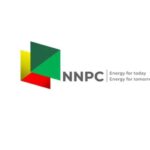There are queries over the capitalisation of the Nigerian National Petroleum Corporation (NNPC) put at N200billion by the registrar/chief executive officer of the Corporate Affairs Commission (CAC), Garba Abubakar.
Abubakar gave the figure yesterday during the presentation of the certificate of incorporation of the NNPC to President Muhammadu Buhari, where he said the corporation had the highest capitalisation in the country at N200bn.
- INEC detects 62,698 cases of double voter registration in Anambra
- Nigerian teachers, perseveringly patient workers
The disclosure about NNPC’s capialisation is bound to cause some confusion to the public in view of the huge assets that belong to it through its various subsidiaries, joint ventures and associates, including the refineries.
The refineries have cost the country several billions of naira through the endless turn-around maintenance operations they passed through.
The spokesperson of the NNPC, Garbadeen Muhammad, could not be reached on phone Friday.
He was also yet to reply a text message sent to him by one of our correspondents.
Abiola Rasaq, a Lagos-based financial analyst, told Daily Trust that, “the audited 2020 financial statements of the NNPC showed it had an equity capital of N1.15trillion, compared to a capital fund of barely N520million, which is just a component of the equity account or capital account.
The corporation is largely geared with trade and other payables, representing some 65 per cent of the N15.8 trillion balance sheet funding, a high leverage typical of oil and gas companies.
“While analysts, and perhaps the general public, may be anxious to put a value on the NNPC, it may be too early to put numbers to it as such valuation requires details on the emerging NNPC being restructured under the provisions of the Petroleum Industry Act.
“Hopefully, the NNPC may draw some lessons from the historic USD1.7 trillion listing of ARAMCO on the Tadawul Exchange in December 2019, when the Saudi government offered 1.5 per cent of the company’s shares to locals after a series of aborted listing intent on international exchanges,” Rasaq added.
Udochukwu Uwasomba, a Lagos-based accountant, said what mattered in a corporate body like this was not its level of capitalisation, though this is very important if that enables it to do a commensurate level of business that translates to profitability.
He said, “At the end of the day, the bottom line is profitability. It is the bottom line that attracts investments: How much can this company make? How much can they declare at the end of the day as dividends to investors? How much did it make out of their level of the capital base?”
The former NNPC reported its first profit this year for its 2020 accounting year, after about 44 years of existence. That profit generated a lot of controversies as many Nigerians queried its authenticity or genuineness.
Uwasomba argued that if a company was not making enough profit, or at the end of the day, was reporting a loss with its high level of capitalisation, then analysts would classify it as being over-capitalised.
“It is good that the company has the highest capitalisation, as long as it can be applied judiciously for profitability,” he said.
Vincent Nwanma, Muideen Olaniyi & Zakariya Adaramola

 Join Daily Trust WhatsApp Community For Quick Access To News and Happenings Around You.
Join Daily Trust WhatsApp Community For Quick Access To News and Happenings Around You.


